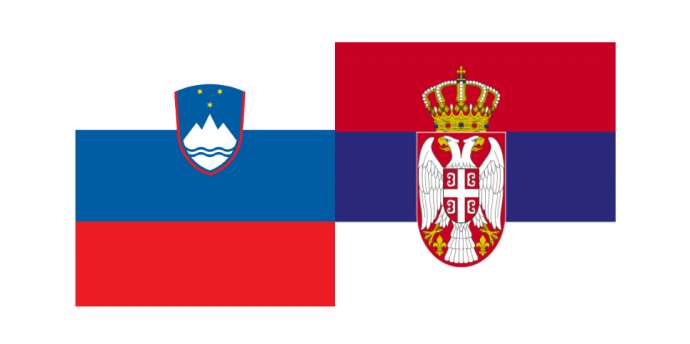STA, 26 January 2019 - President Borut Pahor will pay an official visit to Serbia on Monday and Tuesday for talks with his Serbian counterpart Aleksandar Vučić aimed at enhancing bilateral political relationship and diverse cooperation between the two nations. He will also speak in the Serbian National Assembly and attend a bilateral business forum.
Pahor will discuss topics like Serbia's progress in its efforts to join the EU, the situation in the region and other topical international issues related to migration, security and the future of the EU.
In addition to Vučić, the president will also meet National Assembly Speaker Maja Gojković, with the visit to parliament also including a meeting with representatives of all parliamentary parties and an address to the MPs.
Pahor will be accompanied by Foreign Ministry State Secretary Simona Leskovar and Economic Development and Technology Ministry State Secretary Eva Štravs Podlogarm and a business delegation.
The president's office said that the visit was an opportunity for Pahor to get acquainted with the political situation in Serbia and with the expectations for the country's progress in the accession talks with the EU.
Attention will also be devoted to the summit of the Brdo-Brijuni Process in Albania in May.
Pahor irked Serbia last year by saying that Slovenia would try to get the EU countries which had not yet recognised Kosovo to do so. At the time he also said that the Kosovo issue was a major one that Serbia and Slovenia disagreed on.
Pahor had also said that Slovenia would support Kosovo provided it met the requirements such as complying with the agreement on the normalisation of relations with Serbia, forming an association of Serb municipalities in the north of Kosovo and ratifying the agreement on the border with Montenegro.
The president's office said that in addition to bilateral cooperation, the visit was also an opportunity to discuss the political situation in Serbia and the country's progress in its efforts to join the EU.
Serbia, which launched EU accession talks in January 2014, has opened 16 out of the 35 chapters. The main obstacle are the relations with Kosovo, as the country cannot conclude the negotiations without a comprehensive and binding agreement on the normalisation of the relations between Belgrade and Prishtina.
The relations between Serbia and Kosovo have been tense lately, as Kosovo introduced last November 100% excise duties on goods from Serbia and then established an official army. Kosovo is making abolition of the excise duties conditional on Serbia's recognition of Kosovo.
Serbia has also been facing mass anti-government protests, which are spreading across the country from Belgrade. The protesters demand Vučić step down, accusing him of autocratic rule. They also demand more media freedom.
The accompanying business delegation will feature around 100 representatives of companies interested in digitalisation of business and administration, the circular economy and tourism, according to the Slovenian Chamber of Commerce (GZS).
The Slovenian-Serbian business forum will be held on Tuesday, to be addressed both by Pahor and Vučić. It will feature a debate on digitalisation of business and administration and bilateral meetings featuring more than 400 participants.
Serbia is Slovenia's 10th most important trading partner. Merchandise trade has been exceeding EUR 1bn for a number of years with Slovenia posting a substantial surplus. In 2017 the volume of trade topped EUR 1.3bn and in the first three quarters of 2018 Slovenia's exports rose by another 9% and imports by 26%.
Slovenia's direct investment in Serbia exceeds EUR 1bn, while Serbia's investment in Slovenia has already topped EUR 200m. The biggest Serbian investments in Slovenia are IT company Comtrade, fruit juice producer Fructal, hotels Kempinski and Intercontinental, Portorož Airport and the bank Gorenjska Banka.
This will be the fist visit by Pahor in Serbia since he was re-elected last November, coming after he met Vučić in June 2017 for his inauguration in Belgrade. Pahor's last official visit to Serbia was in 2014, which was also the first official visit by a Slovenian president in the country.







